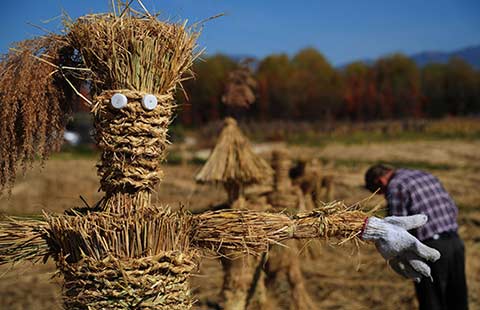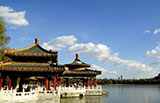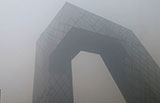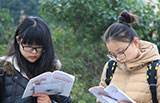Database of Living Buddhas to help spot fake from real
By Cui Jia/Luo Wangshu (China Daily) Updated: 2015-12-08 07:15
Tibetan Buddhism holds that the soul of a Living Buddha is reincarnated in a child. The selection procedure is strict and lengthy, and nearly all Living Buddhas are from the Tibetan ethnic group.
Duoshi Rinpoche, a Living Buddha from Amdo county, Tibet, said the requirements to become a Living Buddha have to be learned during childhood. He said the ceremony Baima Aose performed was "just a joke" and Zhang had made a fool of himself.
Criminal activities involving fake Living Buddhas still occur frequently, Duoshi Rinpoche said.
"I've heard that some monasteries in remote places even put the title of Living Buddha up for sale and trade it with wealthy businessmen," he added.
Xiaba Rinpoche, a Living Buddha in Aba Tibetan autonomous prefecture in Sichuan and executive director of the provincial Buddhist Association, said the database will soon start operating and will be open to the public.
He said the prevalence of fake Living Buddhas can be attributed to people not having access to genuine ones, enabling opportunists to take advantage.
Li Decheng, director of the Religious Research Department at the China Tibetology Research Center, said followers of Tibetan Buddhism outside of Tibetan areas have limited understanding of the religion, such as the process required to ordain a Living Buddha.
This is why these followers are often deceived by fakes, Li said.
- Beijing issues first red alert for heavy air pollution
- Chinese 'ambassadors' shine spotlight on bloody ivory trade
- Database set up to combat fake Living Buddhas
- University calls halt to surgery on animals amid abuse concerns
- Nobel laureate calls for united global malaria fight
- Sick panda rescued in China
- Drone makers turning to farmland
- Mt Qomolangma gets warmer: report
- Bye-bye blue: More smog settling in
- Former tycoon dies at 44 in prison







